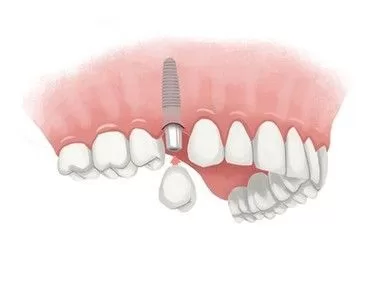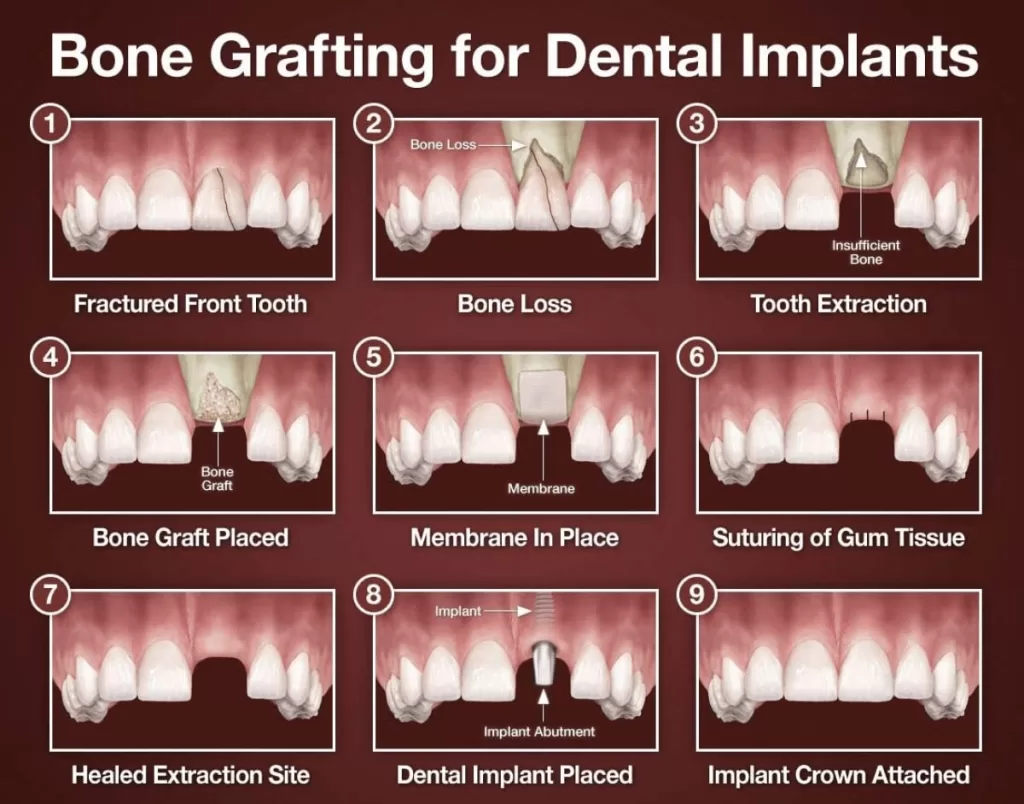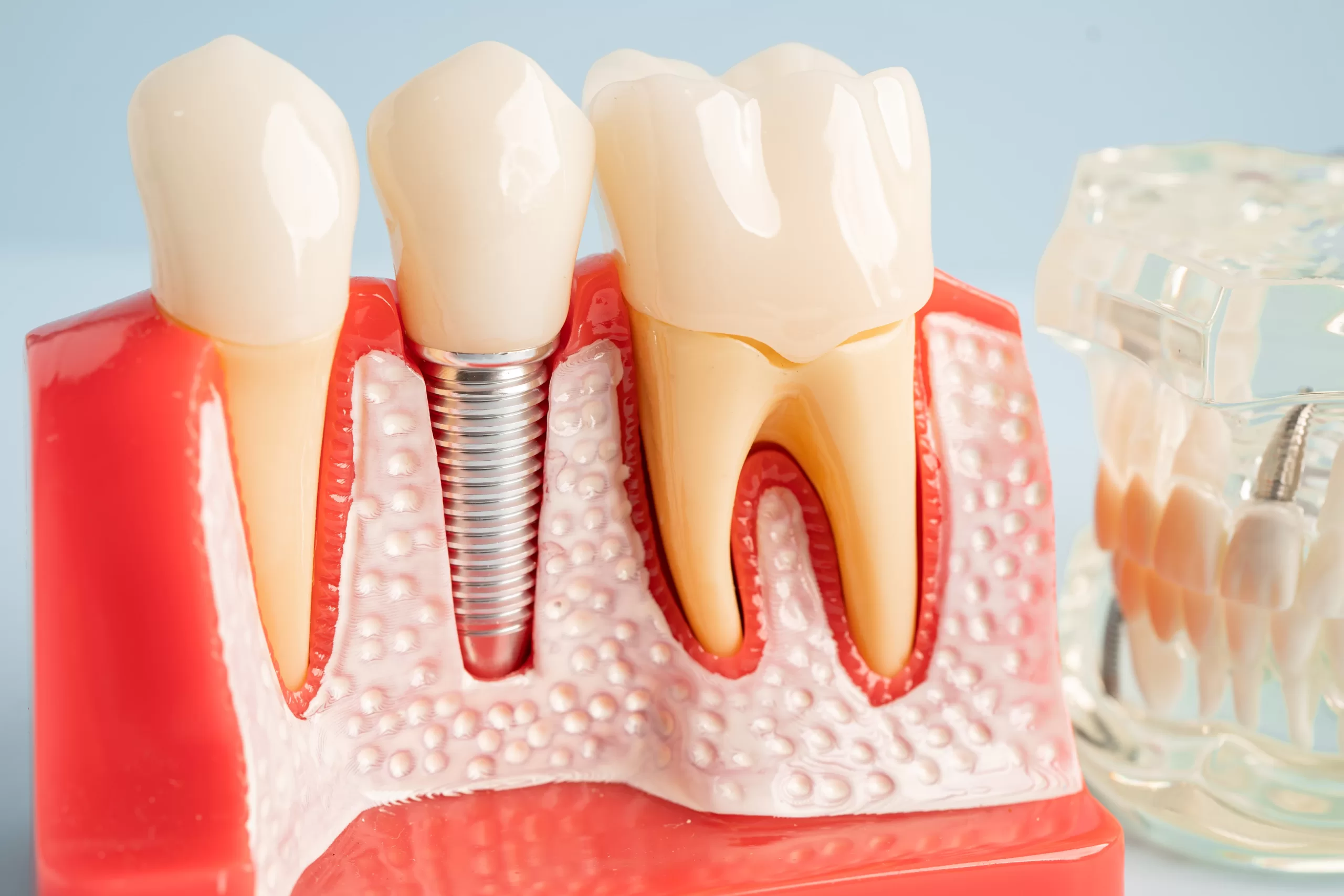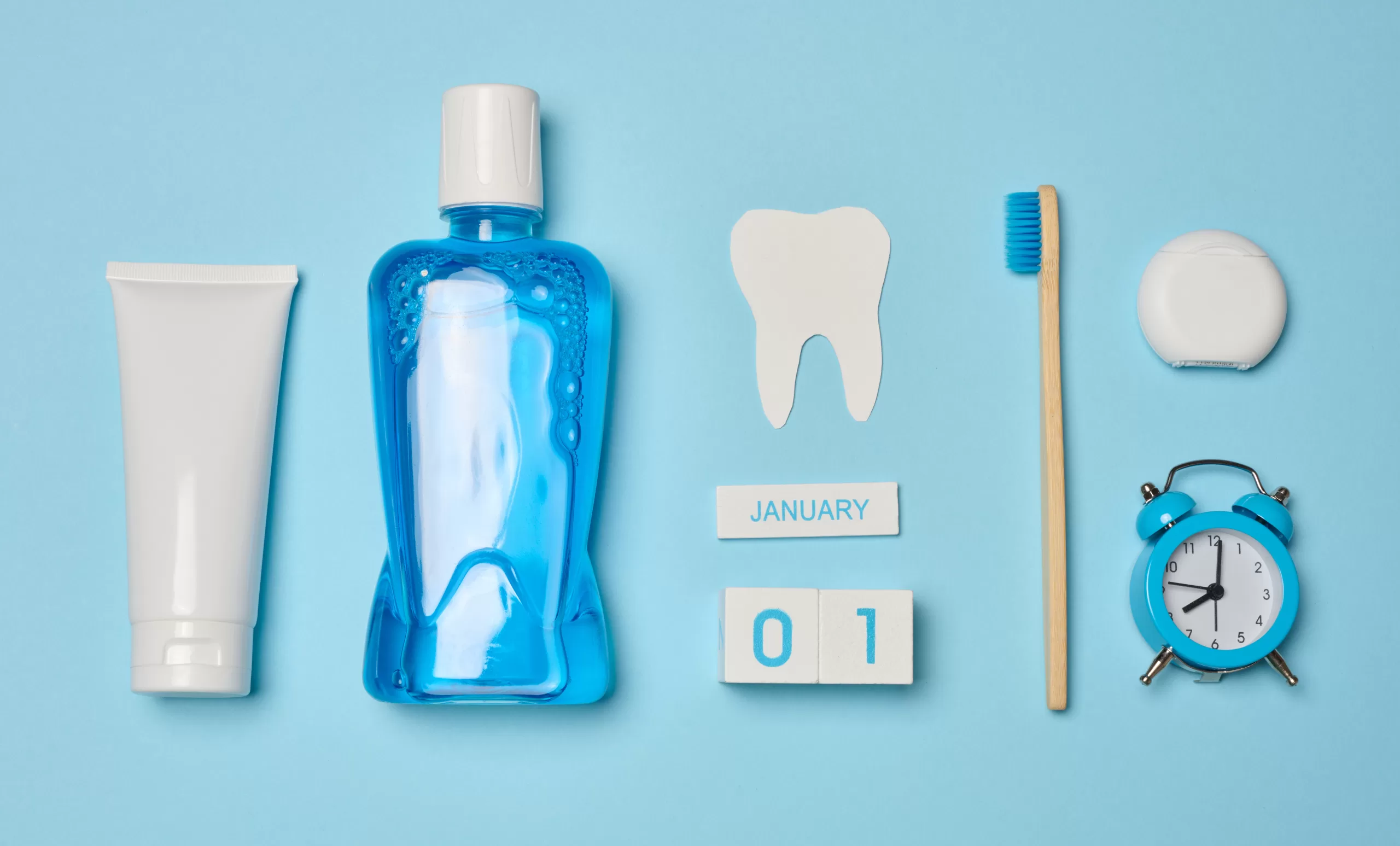Losing teeth can be tough, and many people turn to dental implants as a solution to restore their smile and functionality. But what if you need a dental implant with bone loss? Is it still possible to get one?
The good news is yes, you can still get dental implants even if you have bone loss! It’s a common concern, but advances in dental procedures have made it possible to place implants even for those with less-than-ideal bone structure. Understanding how bone loss affects implant success, along with the treatments that can help, is key to knowing your options.
This blog will help you understand the causes of bone loss, its effects on dental implants, and the treatment options that may help in implant placement with bone loss.
Understanding Bone Loss and Its Impact on Dental Implants
What Causes Bone Loss?
Bone loss can be attributed to several reasons, such as:
- Periodontal diseases: A gum infection that’s literally devouring away the bone supporting your teeth.
- Trauma: Injury to the jaw may break or damage the bone.
- Osteoporosis: This condition weakens bones, making them more prone to deterioration.

How Bone Loss Affects Dental Implants
Bones need to have a certain density so that the implants can be supported well. Scarce, dense bones make it challenging to stabilize the implant, increasing the risk of failure or complications during the procedure.
Assessing Bone Loss for Implants
Advanced imaging techniques like X-rays and CT scans are used to evaluate bone density. At Ridge Oral Surgery, we take the time to fully evaluate each patient’s bony structure to figure out the best approach for placing implants.
Can You Get Implants with Bone Loss?
Assessing Your Candidacy for Implants
Many patients can still have their dental implants even with some bone loss. The quantity of bone loss and your oral health status will determine your suitability for implants.
When Implants Are Possible Without Additional Procedures
In patients with minimal osseous loss, at times the implants can easily be placed without the augmentation of additional bone and, by this aspect, may conserve treatment time and recovery
Alternative Implant Techniques for Patients with Bone Loss
Alternative methods such as All-on-4 or mini implants could be considered for the patient who has considerable bone loss. These methods will rely on the existing bone density to hold the implants.

Treatment Options to Support Dental Implants for Patients with Bone Loss
Bone Grafting
One other common procedure is bone grafting to rebuild bone density.
- Autograft: Bone tissue is transferred from another part of the body to the jaw.
- Allograft: The bone comes from a human donor.
- Xenograft: Bone from animals, primarily cows, promotes the growth of new bone.
- Synthetic Grafts: These are man-made materials used to stimulate and support bone growth.
Ridge Augmentation
Ridge augmentation rebuilds the bone and gum support to better facilitate implant placements while giving back your own natural jaw profile.
Sinus Lift
A sinus lift is used for patients requiring implants in the upper jaw, where the bone under the sinus cavity may be insufficient. The sinus membrane is lifted, and bone is added to create a stable foundation for implants. This procedure is particularly common for patients with bone loss in the upper molar or premolar regions.
Zygomatic Implants
For patients with severe bone loss in the upper jaw, zygomatic implants are anchored into the cheekbone (zygoma). These longer implants bypass the need for bone grafting entirely, leveraging the dense bone in the cheek for stability
Pros and Cons of Getting Implants with Bone Loss
Benefits of Proceeding with Implants
- Restores your chewing ability and smile.
- Prevents further bone loss.
- Boosts oral health and self-confidence.
Potential Challenges
- Increased treatment duration.
- High costs.
- Risk of graft rejection, although quite infrequent.
How Ridge Oral Surgery Minimizes Risks
At Ridge Oral Surgery, we utilize modern surgical techniques and technologies to enhance the chances of success while minimizing risks during the procedure
Costs of Dental Implants with Bone Augmentation
Typical Costs for Bone Grafting and Related Procedures
They actually vary in cost. All these can be estimated accordingly during your consultation with our doctor.
Costs of Implants Following Bone Restoration
Dental implant prices following bone augmentation depend on many factors, all depending on the extent of procedures necessary.
Insurance Coverage and Financing Options
Many insurance plans cover bone augmentation and dental implants. The clinic also offers financing to help patients manage their treatments comfortably.
Recovery and Aftercare for Dental Implants with Bone Grafting
Recovery Timeline for Bone Grafting and Implants
Regarding the recovery process, it’s common for there to be a waiting period after bone grafting to allow the graft to fully integrate with the natural bone before dental implants can be placed. Depending on the type of graft used and the patient’s healing process, this period can range from a few months to longer.

Post-Procedure Care for Successful Healing
Follow all aftercare instructions to heal well. Dietary changes, oral hygiene, and managing pain are important.
Long-Term Maintenance of Implants After Bone Loss Treatment
Preventive care is crucial for maintaining the longevity of your dental implants, and regular checkups play an essential role in ensuring their lifespan. We provide guidance on appropriate care throughout your lifetime, focusing not only on your implants but also on the health of your jawbone.
Why Choose Ridge Oral Surgery for Dental Implants with Bone Loss?
Patient Testimonials and Personalized Care
We take pride in the success stories of our patients, who leave our office transformed with new smiles. Their words are a testament to the quality of care we provide.
We utilize modern technology and tailor individual treatment plans to maximize results for all our patients. Our treatment plans are designed to provide better results.
Conclusion
Dental implants can be done even when there is bone loss. Ridge Oral Surgery offers advanced procedures that will restore your smile and improve your health. Contact us today to schedule a consultation and learn about the possible dental implant options for you, even with bone loss.
FAQs
1.How long does a bone graft take to heal before getting an implant?
Healing times are different; however, an implant would typically be placed after a few months.
2. Is bone grafting necessary for all patients with bone loss?
Not necessarily so. That would depend on the degree of bone loss in your individual case.
3. Are there any risks associated with getting dental implants after bone loss treatment?
As with other surgery, infection, and transplant rejection are potential dangers, but these can be avoided with proper care.
4. Can bone loss continue after getting implants?
Bone loss may still occur in cases where the implants are not taken proper care of. Routine check-ups are crucial.
5. How long do implants last with proper care?
Dental implants with proper care can last decades to a lifetime.





